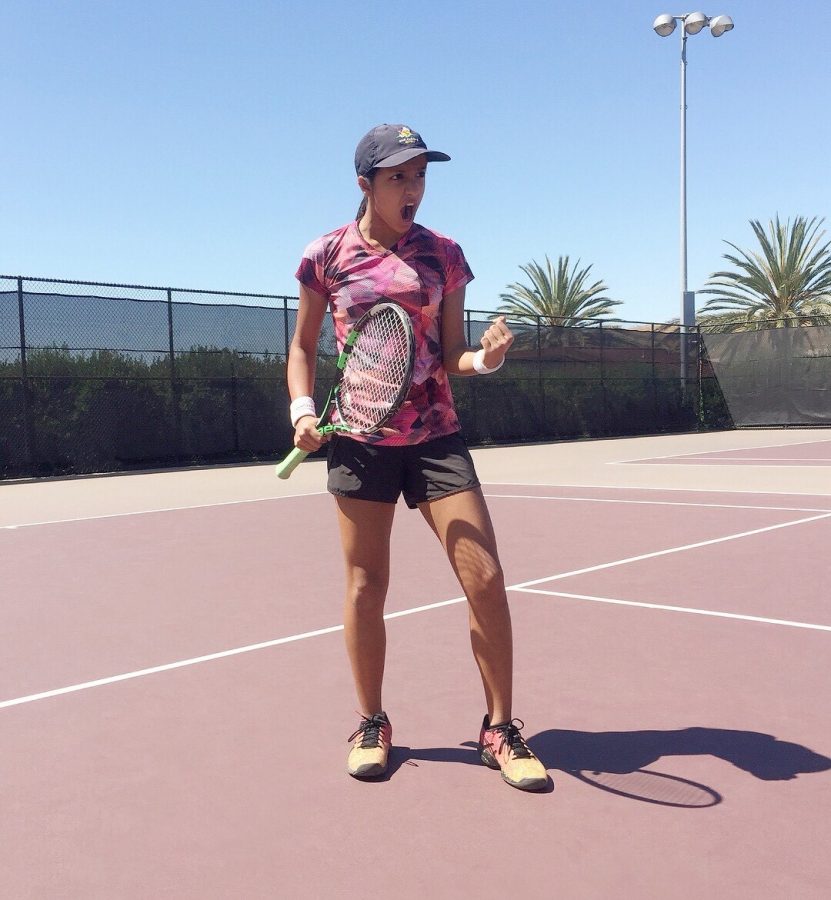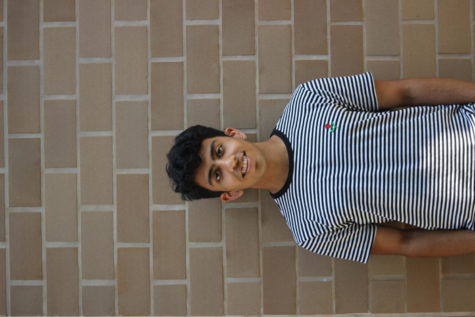Sana Shehabi’s meteoric rise serves as an inspiration to DV athletes
Sana Shehabi celebrates a thrilling victory after a hard set
December 14, 2020
As a wild 2020 wraps up, Novak Djokovic has cemented his place as the best tennis player this year.
Of course this is nothing new. He’s been up there for a cumulative 293 weeks now. 293 weeks of merciless dominance over men’s tennis, while winning 17 Grand Titles in the process. The Serbian tennis player’s struggles of growing up in the failed state of Yugoslavia tell a tale of hard work and dedication, inspiring tennis players around the world.
Sana Shehabi is among those that revere him.
Adorning a collection of Djokovic posters and other trinkets, these small reminders inspire her everyday to emulate her idol. “The chances of him [Djokovic] becoming a professional were very low… he had enough determination to actually achieve his dreams and I find that very motivating.”
“Just his whole attitude and dedication towards life and the sport, I feel like is just a very good example for young athletes,” says Shehabi. She believes that this dedication, along with other traits is the perfect blend for success for any athlete, especially tennis.
Shehabi describes these values in her memoir, My Journey in Tennis: How I Learned To Excel (And You Can Too), a 72-page description of her tennis life at a young age. In this book, Shehabi describes what it takes to be a top athlete and tennis player. Shehabi details topics such as key success factors to the technical aspects of tennis and written at the young age of 13, she has a clear vision of how she perceives herself as not only a tennis player but as a student and person as well.
However, balancing tennis and being a student at Dougherty is not easy. Shehabi explains that keeping the same level of motivation every day is the key to success when balancing the task of being a DV student and a competitive tennis player.
“That was actually my biggest challenge entering high school… I did have to compromise since I wanted to prioritize academics. Time management was something I had to learn. I would finish up my work as soon as possible, and then go on the court and then play until late at night.”
Over the years, such challenges have provided her with impactful moments. She recollects one game that impacted her the most as a tennis player.
”In 2016 my team and I were at the state championships, and we were in the finals match. The score was tied between the teams and my coach chose me to play the last set. I ended up winning the match.” Shehabi said. “That entire tournament just really showed me a lot about staying motivated and finishing through, because there were so many times that our team was so close to losing, but we had to stay in it, If we gave less effort than we did, we would not have won the championship.”
Shehabi declares this moment as the point in time where she realized that if enough effort was put into the sport, good things would come to fruition. This mantra and work ethic was first taught to her by her childhood coach.
“My first tennis coach really drove a lot of passion [for tennis] into me. Honestly, I don’t really know if I would’ve continued the sport without her. She just made tennis fun while teaching me a lot of life lessons.”
Unlike most teenagers, Shehabi has a clear understanding of what she plans to do in her future. When asked if she was planning on playing division one tennis, she said, “Once I started researching that entire pathway, I realized that wasn’t for me, especially since I want to do medicine in the future.” Despite this, she plans on still playing the sport, albeit at a club level.
She’s hopeful, and even though she won’t be playing for the college varsity team, she believes that tennis will remain an integral part of her life, stating, “It honestly depends on what you make of it… I’ll still be working every day to get better.”





